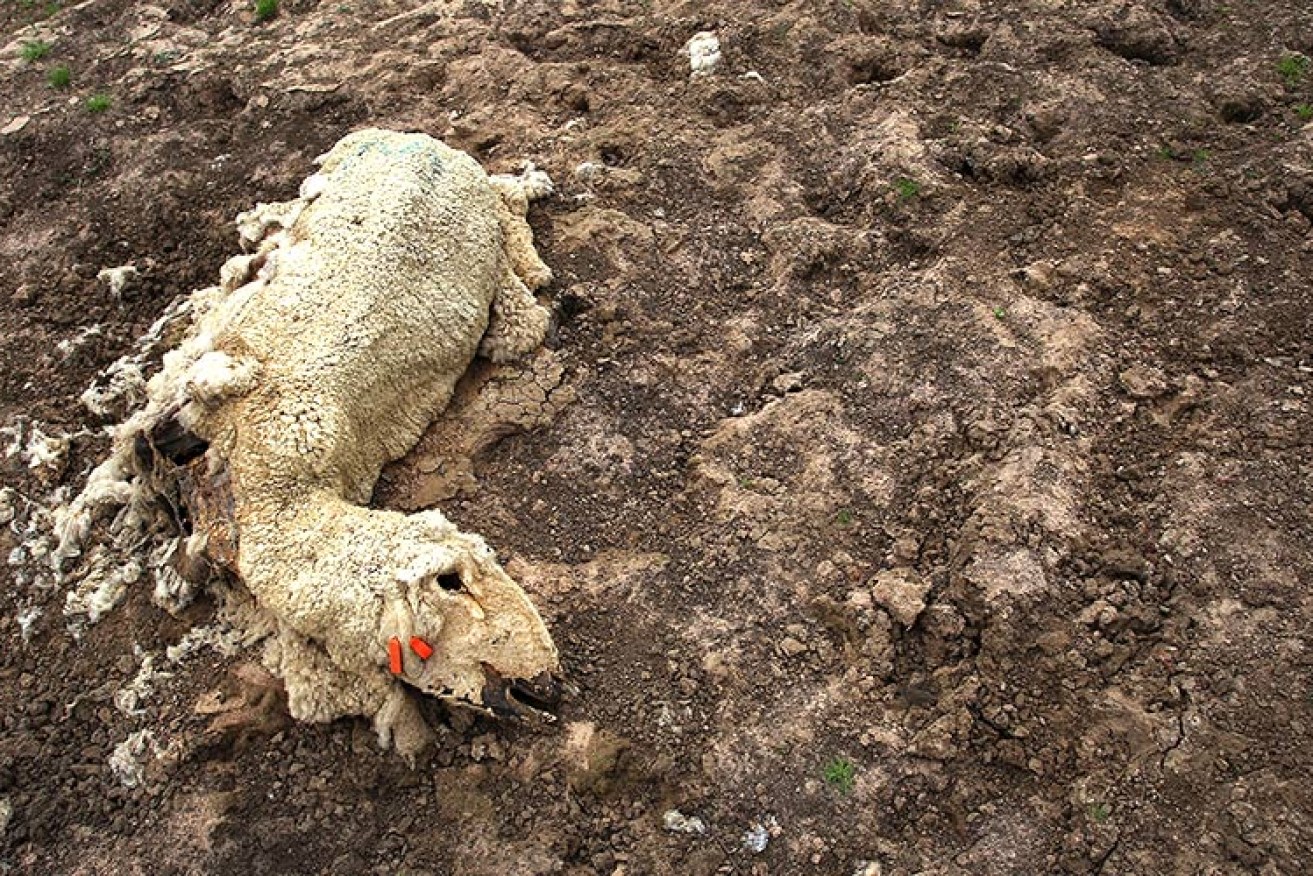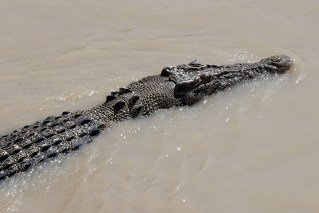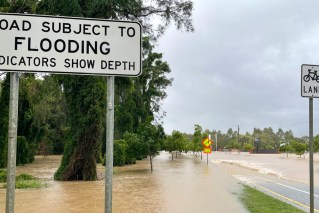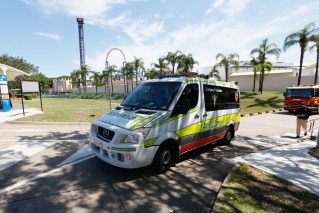‘Worst drought’ in Qld history ravaging farmers, livestock

Farmers in the grip of the worst drought in Queensland’s history are sending livestock to slaughter at record levels while others are simply giving up and walking away from their debt-racked properties.
Just over 80 per cent of the state is now officially in drought, the once fertile land reduced to something akin to a lunar landscape.
Little rain has fallen in many areas in western and northern Queensland for more than four years, leaving properties bone dry and bare.
• How to speed up your internet
• Outback mayor makes bid to bring Hollywood to Qld
• New El Nino system for Australia
General president of rural lobby group AgForce Grant Maudsley said the drought was proving “absolutely disastrous” for regional Queensland economies.
More than 135,000,000 hectares of the state were now drought declared – an area nearly six times the size of the United Kingdom.
“This is the worst drought in the state’s history … it’s just gone on and on,” Mr Maudsley told The New Daily.
After another failed wet season – the third in a row – there is every indication that this big dry has many months, and maybe even years, to play out.
The latest Bureau of Meteorology forecast is ominous – a moderate-to-strong El Nino weather phenomenon is predicted for the second half of this year which is likely to curb winter and spring rainfall and exacerbate an already dire situation.
Not only are people on the land suffering, the financial impact is starting to hurt local towns and businesses whose survival is heavily reliant on the income generated by the surrounding farming community.

A dry creek bed near Longreach in Queensland.
Financially devastating
A recent survey by AgForce showed that about 50 per cent of farmers had seen their incomes reduced by up to half because of the drought, with one-in-six losing more than 75 per cent of their earnings over the past three years.
In fact, the outlook is so bleak there are genuine fears for the mental health of some farmers who will take years to clear their debts – even if the drought breaks soon and normal rainfall returns.

Farmer Nic Walker give his dog a drink from his hat during a break in mustering.
The Federal Government responded to the crisis earlier this month with more money for rural financial counsellors and mental health support as part of a $333 million drought assistance package announced by Prime Minister Tony Abbott, who said it was “in the national interest” to help farmers through times of drought.
Mr Maudsley said the drought had decimated the income of many farmers.
“But it’s not just hurting the primary producers – it’s also affecting the businesses in the towns who can only hang on for so long,” he said.

Queensland farmer Nic Walker rounds up sheep on his property during better times. Photo: Getty
Mr Maudsley acknowledged reports that some farmers had been forced to walk away from their properties to live and seek work elsewhere.
He said the financial and personal strain drought placed on farming families could not be underestimated.
“The general rule of thumb is it takes two years to recover financially from every one year of drought equating to at least a six-year process for these families, rural businesses and regional communities – and that’s making the assumption rain will come soon,” Mr Maudsley said.

The carcasses of dead sheep and other animals litter farms across Queensland. Photo: Getty
A rural GP practising in Longreach in western Queensland told The New Daily that the prolonged drought was definitely impacting on some people’s mental state.
While it was hard to generalise, there were those for whom the drought was “the final straw”.
“There are certainly people who feel it more than others and there are lot of factors that play into that and financial is just one of them,” the GP said.
Heavy toll on livestock
Figures show that Queensland farmers are selling off livestock in record numbers, with more than 90,000 head a month being slaughtered.
This widespread de-stocking has resulted in 85 per cent of farmers running less than three-quarters of their normal livestock capacity. Crop farmers are also dramatically scaling back, with most reducing plantings by between 50 and 100 per cent.
The plight of a young family south of Longreach illustrates the heartbreak endured by farmers who make the gut-wrenching decision to walk off the land.
After three consecutive failed wet seasons, Nic and Carley Walker said they had spent a fortune on supplementary feed for the cattle and sheep on their property, but the health of their stock deteriorated in the drought conditions.
“Daily life is a lot of killing and a lot of suffering,” she told the ABC. “You’re driving around twice a day putting things out of their misery and it takes a huge toll.
“You’ve constantly got blood on your shoes and you smell like sheep blood and stinky, rancid mud. Everybody gets sick of it. It’s really draining.”
Mrs Walker said they recently sold the last of their sheep through an online auction.
“We were loathe to sell them but it was a financial decision and a humane decision,” she said.
The Walkers estimated it could be years before they could restock and make a living again, so they decided to put their property on the market.
As cash-strapped graziers tighten their belts, shops and businesses in many towns are struggling in turn.
Longreach accountant Bill Ringrose, who advises many business owners in the town and throughout the region, told the ABC that clients had reported their turnovers dropping by half.
“I think we could easily see a huge economic collapse in western Queensland and western New South Wales,” he said.
“When things start spiralling downwards, they can get out of control, little towns will suffer and will probably die.”







